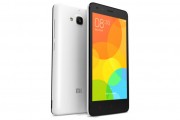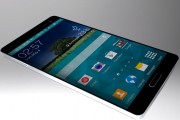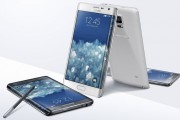With Microsoft reportedly thinking of joining the budding smartwatch fray, one really has to think: is the draw of that potential market category really that great? The success of Pebble triggered it, Apple wants in on it, Android manufacturers have jumped or are jumping in on it, and now Microsoft is also thinking about it. Manufacturers are actively seeking the next great battleground and, by all indications, they have their eyes set on wearables in general and smartwatches in particular.
Apple’s at it again—and others are following suit
One thing that could have contributed to the buzz around smartwatches is the rampant rumor that Apple is developing one of its own. Apple’s reputation (deserved or not, depending on your beliefs and opinions) as an innovator could be the very trigger for the creation of this new market. If Apple’s seriously making it, then it must be great.
Regardless of how expensive iProducts tend to be, they are almost always high-quality, superbly designed pieces of hardware; so any smartwatch from the Cupertino-based tech company should set a high standard for the rest of the contenders, of which there will be many if Apple succeeds in taking this segment to the mainstream.
Wait—aren’t there smartwatches already? It’s true, Motorola and Sony have managed to take some Android-run smartwatch attempts to the market in recent years; but those did not really gain too much traction. For one, Motorola’s try was more of a fitness watch that simply ran on Android. Sony’s, on the other hand, wasn’t really as smart as we’d hoped. Pebble is perhaps the most successful product we have to date, as the smartwatch made for iOS and Android has been selling like hotcakes lately.
Smartwatch impact
How would smartwatches affect people’s lives? The level of adoption (and, linked to that, sales figures) that smartwatches will receive will ultimately depend on how much impact they will have. That is, they will have to provide a seamless and complementary experience that will round out the smartphones they are linked to. Will users be able to access a full suite of communication services (3g, 4g, VoIP service, video calls, etc.) available to phones?
Some people don’t even use watches anymore—they’d rather just take a quick glance at the clock on their phones’ lock screens. People love being able to set multiple alarms with different alarm sounds, and they can do this using their smartphones. There’s already a ton of functionality made possible through current mobile devices, so it’s tough to imagine most people wanting another costly and fairly redundant gadget that will end up draining the juice of their phones or tablets (because smartwatches connect via Bluetooth, after all).
Then again, you do get that subset of people who simply must have the latest pieces of tech. It’s the early adopters that will determine how successful this niche would become, and they will only buy these gadgets if the smartwatches can add enough to their experience, with ‘enough’ meaning things that they wouldn’t normally have access to with their smartphones or tablets alone.
It looks like the field of wearables will be the next big thing in tech. Many believe that there’s massive potential in wearables, and smartwatches represent the tip of that iceberg. Manufacturers need to succeed here, simply because it looks like they’ve exhausted much of the potential of current mobile devices. They need a new arena within which they can flex their technological prowess, and smartwatches provide that while also allowing companies to maximize and keep fresh existing products like smartphones and tablets. Everything is now linked together; and if the smartwatch segment picks up, it will also pull up sales figures of the connected mobile devices.



